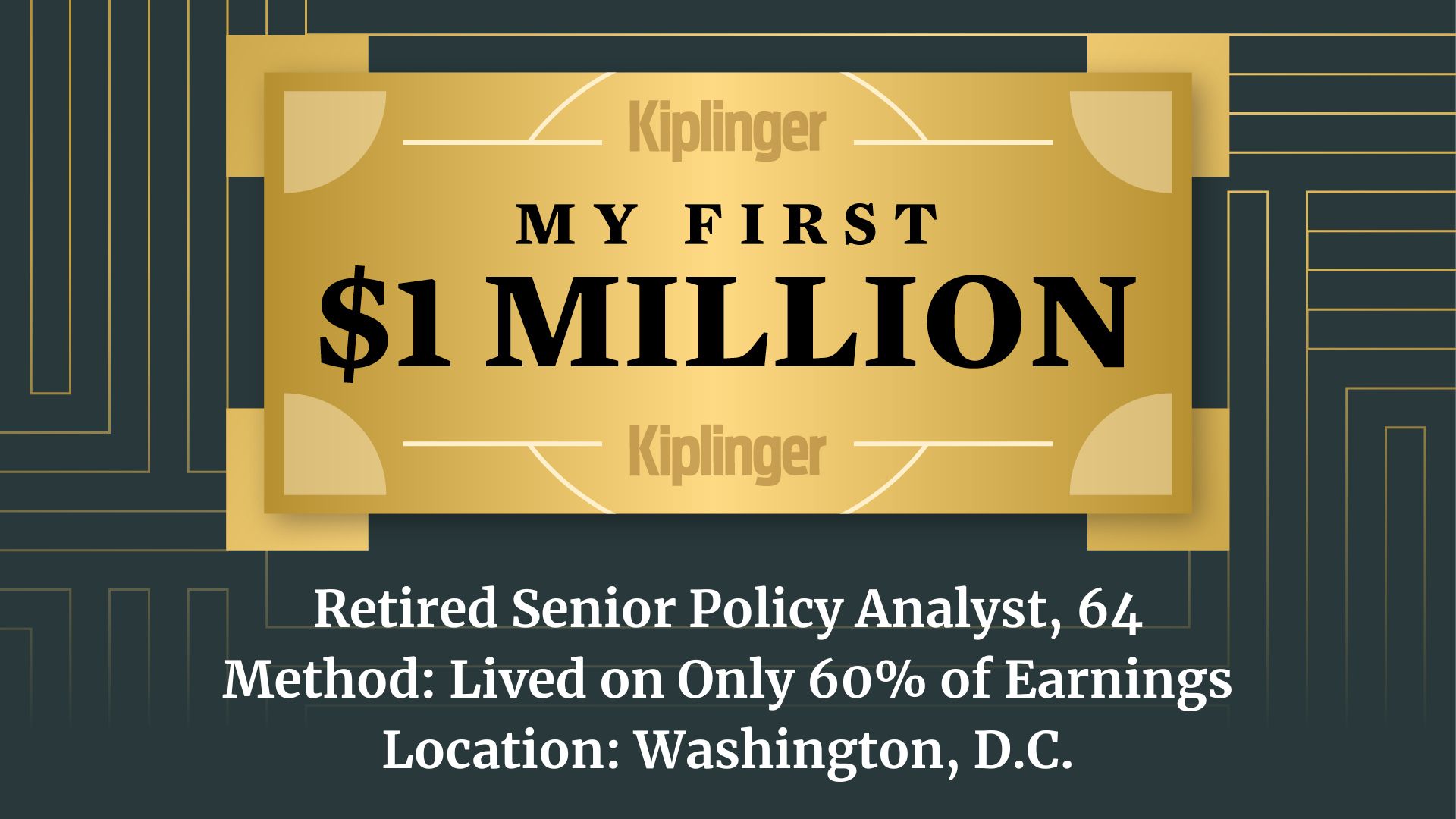Best Money Market Accounts — February 2026
Money market accounts offer the flexibility of checking accounts while helping you earn up to 4.00% APY.

Profit and prosper with the best of Kiplinger's advice on investing, taxes, retirement, personal finance and much more. Delivered daily. Enter your email in the box and click Sign Me Up.
You are now subscribed
Your newsletter sign-up was successful
Want to add more newsletters?
A money market account gives you the flexibility of a checking account, with the high returns of a high-yield savings account, making it a perfect way to earmark money for saving goals if you don't want to tie up your money in CDs.
Money market accounts differ from traditional savings accounts in that they allow check-writing privileges and a debit card. You can use the debit card for ATM withdrawals and other purchases.
They also offer a higher level of liquidity that you likely won't find in other high-yield savings accounts. The APY of a money market account includes compounding interest, which is usually credited monthly.
From just $107.88 $24.99 for Kiplinger Personal Finance
Become a smarter, better informed investor. Subscribe from just $107.88 $24.99, plus get up to 4 Special Issues

Sign up for Kiplinger’s Free Newsletters
Profit and prosper with the best of expert advice on investing, taxes, retirement, personal finance and more - straight to your e-mail.
Profit and prosper with the best of expert advice - straight to your e-mail.
Top money market accounts right now
Here are some of the best money market accounts. All are FDIC-insured banks or NCUA credit unions, letting you keep your savings safe:
Account | APY | Min. Opening Deposit |
|---|---|---|
4.00% | $100 | |
4.00% | $1,000 | |
3.80% | $1,000 | |
3.85% | $1 | |
3.70% | $100 | |
3.50% | $50 |
Pros of a money market account:
Some of the benefits:
- They offer higher interest rates than a traditional savings account
- You gain more access to your cash through debit card and check-writing capabilities
- Money market accounts are safe ways to grow your cash, as most are FDIC or NCUA-insured.
Use this tool to compare some of today's top savings options fast:
Cons of a money market account
Keep these things in mind before opening a money market account:
- Many banks require a minimum deposit to open an account, and have minimum balance requirements, as well
- The return on money market accounts can be lower historically than investing your money in the stock market
- The interest rate on money market accounts is variable, meaning that if the Federal Reserve cuts interest rates again, your money market rate could drop
- Having easy access to savings can encourage some to spend more than they ought
Who benefits the most from money market accounts?

These accounts work best for savers who have an emergency fund established and need fluid savings goals. This could include a home improvement project, reallocating investments as you approach retirement or saving for a vacation.
If you have a goal longer than a year and don't need regular cash access, it's advisable to consider a certificate of deposit since they offer fixed interest rates. It will protect your earnings from future rate cuts. Just know that term-based CDs come with early termination fees, so if you need the money for any reason, you'll lose some earnings.
The other thing to keep in mind is how often you'll need to access the money. If you need regular cash access, a high-yield savings account might be a better solution. You can earn comparable rates without any transaction limits.
How money market accounts help you reach your goals
Money market accounts offer high APYs and cash flexibility, making them perfect for savers with shorter-term savings goals. Just be mindful of any minimum balance requirements and transaction limits before opening one.
Overall, they're among the most versatile savings solutions available, even with these considerations.
Related content
Profit and prosper with the best of Kiplinger's advice on investing, taxes, retirement, personal finance and much more. Delivered daily. Enter your email in the box and click Sign Me Up.

Sean is a veteran personal finance writer, with over 10 years of experience. He's written finance guides on insurance, savings, travel and more for CNET, Bankrate and GOBankingRates.
-
 4 High-End Experiences Worth the Splurge After 50
4 High-End Experiences Worth the Splurge After 50These curated date ideas provide the perfect backdrop for couples ready to enjoy the very best that the world has to offer.
-
 Health Care Stocks Have Sagged. Can You Bet on a Recovery?
Health Care Stocks Have Sagged. Can You Bet on a Recovery?The flagging health care sector has perked up a bit lately. Is it time to invest?
-
 Costco's Auto Program: Can Membership Pricing Really Save You Money on a Car?
Costco's Auto Program: Can Membership Pricing Really Save You Money on a Car?Costco's Auto Program can simplify the car-buying process with prearranged pricing and member perks. Here's what to know before you use it.
-
 What Is an Assumable Mortgage and Could It Save You Thousands?
What Is an Assumable Mortgage and Could It Save You Thousands?With mortgage rates still elevated, taking over a seller’s existing home loan could lower monthly payments — if the numbers work.
-
 Have You Fallen Into the High-Earning Trap? This Is How to Escape
Have You Fallen Into the High-Earning Trap? This Is How to EscapeHigh income is a gift, but it can pull you into higher spending, undisciplined investing and overreliance on future earnings. These actionable steps will help you escape the trap.
-
 I'm a Financial Adviser: These 3 Questions Can Help You Navigate a Noisy Year With Financial Clarity
I'm a Financial Adviser: These 3 Questions Can Help You Navigate a Noisy Year With Financial ClarityThe key is to resist focusing only on the markets. Instead, when making financial decisions, think about your values and what matters the most to you.
-
 Where Olympians Store Their Medals is a Great Lesson For Your Valuables and Cash
Where Olympians Store Their Medals is a Great Lesson For Your Valuables and CashWhat you can learn about protecting your cash and values from where Olympians store their medals.
-
 An Executive's 'Idiotic' Idea: Skip Safety Class and Commit a Federal Crime
An Executive's 'Idiotic' Idea: Skip Safety Class and Commit a Federal CrimeSeveral medical professionals reached out to say that one of their bosses suggested committing a crime to fulfill OSHA requirements. What's an employee to do?
-
 How You Can Use the Financial Resource Built Into Your Home to Help With Your Long-Term Goals
How You Can Use the Financial Resource Built Into Your Home to Help With Your Long-Term GoalsHomeowners are increasingly using their home equity, through products like HELOCs and home equity loans, as a financial resource for managing debt, funding renovations and more.
-
 How to Find Free Money for Graduate School as Federal Loans Tighten in 2026
How to Find Free Money for Graduate School as Federal Loans Tighten in 2026Starting July 1, federal borrowing will be capped for new graduate students, making scholarships and other forms of "free money" vital. Here's what to know.
-
 My First $1 Million: Retired Senior Policy Analyst, 64, Washington, D.C.
My First $1 Million: Retired Senior Policy Analyst, 64, Washington, D.C.Ever wonder how someone who's made a million dollars or more did it? Kiplinger's My First $1 Million series uncovers the answers.